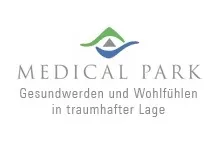
The Fascia Research Project is a collaboration between the Technical University of Munich, Associate Professorship of Conservative and Rehabilitative Orthopaedics, and the Germany based charity association Verein zur Förderung der Faszienforschung e.V.
In close cooperation with other international research groups devoted to the rapidly developing field of fascia research, this initiative attempts to explore the biomechanical, sensorial and physiological properties of the body wide fascial network in the human body from an evidence oriented perspective.
Tissues included (in our understanding of the fascial network) encompass aponeuroses, intramuscular connective tissues, tendons, ligaments, joint capsules, septi, retinaculae, in addition to dense irregular connective tissue sheets ('proper fasciae') such as the nucheal fascia or plantar fascia.
Current research activities of this project include:
- Response of human fasciae to therapeutic manipulation, such as e.g. manual myofascial treatments, active/passive stretching, or self-myofascial release.
- Development and optimizing of non-surgical fascia-oriented treatment options for people with pathologies of the musculoskeletal system as well as those recovering functionally after surgery.
- Function of the human lumbar fascia in walking.
- Improved understanding of biomechanical interactions of fascial tissues between foot and leg/hip structures in the human body.
- Fascial perspectives in running analysis and shoe developments.
- The role of calcium activated potassium channels in myofibroblast proliferation and in fibroproliferative diseases.
- Development of new quantitative assessment methods for the field of fascia research.
-> To homepage of Fascia Research Project

